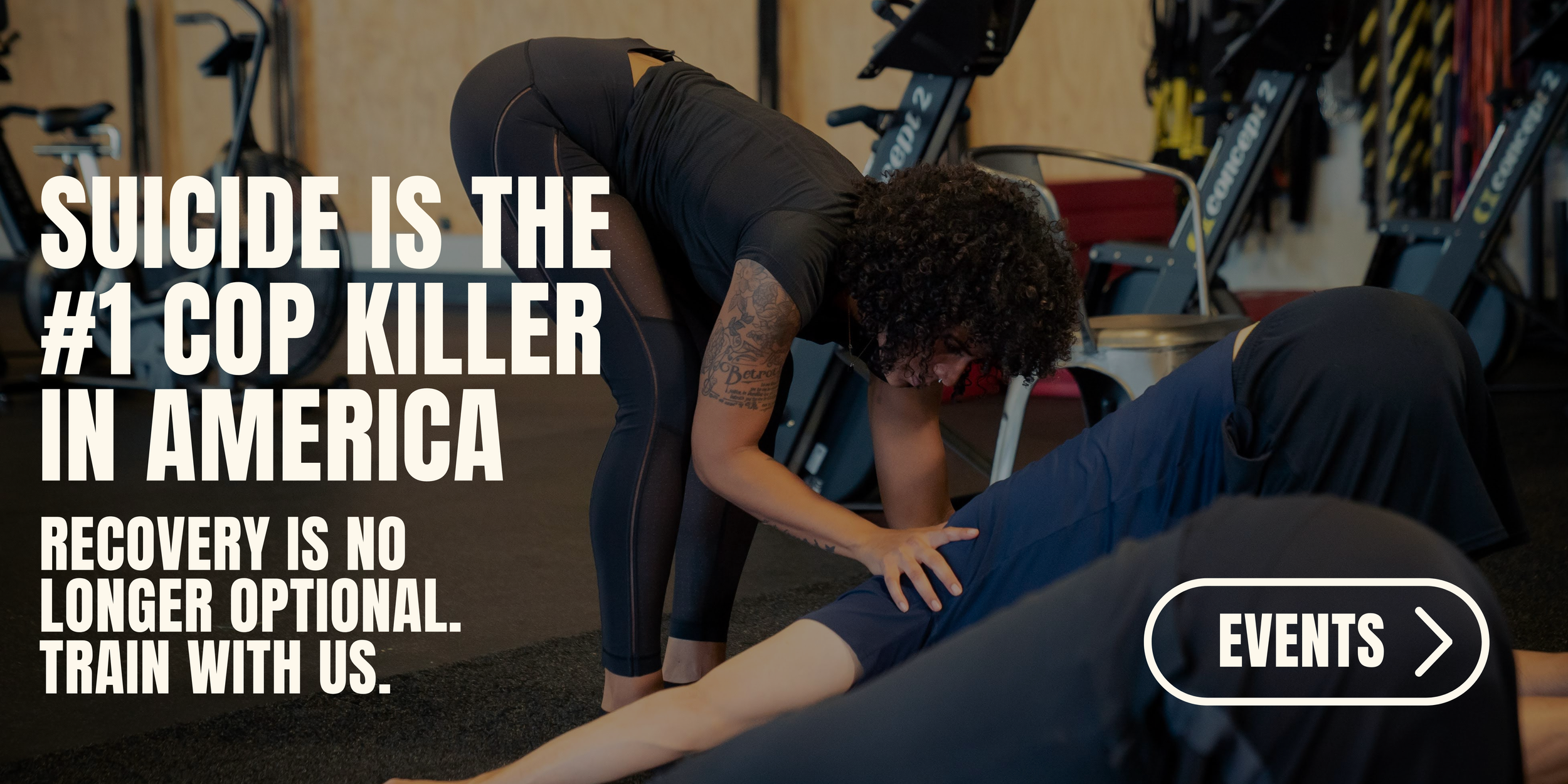You Can’t Outrun Your Nervous System
One of the hardest lessons for first responders to learn isn’t how to run toward danger, stay calm under pressure, or manage chaos — it's learning that being good at your job doesn’t mean you’re immune to the effects of it.
In this line of work, it’s easy to fall into the mindset of “just doing my job.” You show up, compartmentalize, perform, and move on to the next call. And while that level of detachment might be necessary in the moment, it doesn’t mean your body and nervous system aren’t reacting underneath the surface.
You’re human first.
And, humans are wired to respond to stress, trauma, fear, and uncertainty — no matter how trained or experienced you are. Ignoring that reality doesn't make it go away. In fact, it does the opposite: it builds up, quietly and consistently, until it starts to show up in ways you didn’t expect — anxiety, short temper, poor sleep, fatigue, or feeling emotionally flat.
That’s why it’s so important to check in with yourself — not just mentally, but physically and emotionally — after intense or even routine calls. Because what you don’t process, your body will carry.
Start with Emotions: Use the Emotions Wheel
We’re often taught to view emotions as a distraction, or something to be pushed aside in order to get the job done. But emotions aren’t good or bad — they’re information. They tell you what your nervous system experienced and help you understand how something affected you.
If you’re not sure what you felt, try using a tool like the emotions wheel. It helps break down broad feelings like “angry” or “sad” into more specific emotions like “frustrated,” “overwhelmed,” “powerless,” or “isolated.” The more accurately you can name what you felt, the more you understand your own reactions.
For example:
Did you feel anxious on scene, but brush it off as being alert?
Did you feel guilt after a call didn’t go the way you wanted?
Did you feel resentful or burned out but told yourself to “suck it up”?
You’re not ridiculous for feeling those things. You’re human. And when you name your emotions, you tame them — literally. Naming emotions has been shown to reduce the intensity of those feelings in the brain and bring a greater sense of control.
Then, Try A Body Scan
Once you’ve identified what you felt, take a moment to connect to any sensations happening in your body. This is where a lot of your stress hides when you’ve been powering through it without noticing.
Sit quietly, even for 60 seconds, and scan from head to toe:
Is your jaw clenched?
Is your chest tight?
Are your shoulders tense?
Does your stomach feel heavy or like it’s in knots?
Body sensations are signals. They’re the physical version of your emotions. You can’t think your way out of stress. You have to feel your way through it and that begins with noticing.
Once you’ve identified those tense areas, try relaxing the muscles, slowing your breathing, or simply giving yourself a minute to exhale deeply. Releasing the tension in your body signals to your nervous system that you're safe now and that the threat is over.
Why It Matters
This isn’t about turning first responders into therapists. It’s about keeping you functional, healthy, and emotionally present — for your team, your family, and yourself. The job demands a lot, but ignoring your nervous system and emotions doesn’t make you stronger — it makes you more vulnerable to long-term burnout and trauma.
Take the two minutes. Check in with your feelings. Scan your body. Release the tension. You can be a badass and still honor what your body went through.
Because being aware of what you’re carrying is the first step to not letting it carry you.
Written by Mel Koenen
Mel is a licensed associate therapist that specializes in first responders and is the wife of a trooper. She is passionate about bringing good, practical wellness solutions to first responders.
Join us on Instagram!















